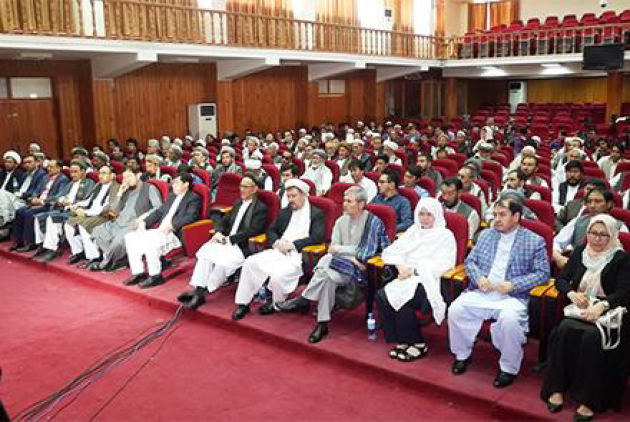KABUL - The Independent Election Commission’s move to hold zone-based elections in Ghazni continues to spark reaction.
Some lawmakers in Afghanistan’s Wolesi Jirga (Lower House of Parliament), political parties and members of civil society institutions on Thursday blasted the Independent Election Commission (IEC) for its move to conduct zone-based elections in Ghazni, saying the decision is in contravention of the Constitution and the election law.
They said the controversial decision by the election commission regarding zone-based elections in Ghazni will increase ethnic differences in the province. They in turn called on the Afghan government to intervene and reverse the move.
But the IEC argues that the decision was taken in order to resolve the election deadlock in the volatile province.
One MP from Ghazni, Assadullah Saadati asked: “Where has it been stated in the Constitution that you assign the responsibility of the Constitution to the election commission and then the commission assigns it to government?”
“The president decides on his own and says that zone-based elections is not in the interests of the Afghan people, so then how can they (the IEC) take a decision which violates the law,” MP Sayed Ali Kazimi said.
Lawmakers also accused government of interfering in the IEC.
They said that such a move will push the nation towards a crisis.
“The election will head for a crisis under this government and this administration, God forbid, if again there is a crisis, that will be pretty dangerous,” said Ahmad Wali Massoud, chairman of the Massoud Foundation.
“The Independent Election Commission and the Afghan government should avoid creating another crisis in the country and in Ghazni by making illegal, biased and unjust decisions,” MP Abdul Qayoummm Sajjadi said.
However, the president’s office dispelled these allegations and said government was not interfering in the process.
“The Independent Election Commission is a sovereign body and government does not interfere at all in its work and it does not allow other institutions to meddle in (the IEC’s) job,” said President Ashraf Ghani’s spokesman Haroon Chakhansuri.
Other lawmakers meanwhile said that the move by the IEC will add to the people’s lack of confidence in the election process.
“This illegal decision will harm the trust the people have in the elections and the commission; this will mark the beginning of a social crisis and expansion of ethnic differences and it should be stopped,” MP Chaman Shah Etemadi said.
“We will use all democratic channels to confront this law-breaking move,” said MP Jaffar Mahdawi.
The IEC’s recommendation of splitting the multi-ethnic province of Ghazni into three election constituencies comes after all MPs from Ghazni who won seats in the last elections came from the same ethnic group.
Ghazni MPs said earlier this week that in addition to being unconstitutional, the decision is a breach of articles 35, 36, and 71 of the current elections law, and therefore lacks a legal basis.
Article 36 also states that the boundaries of electoral constituencies shall be determined at least 180 days before the election day.
Government meanwhile rejected a plan to reduce electoral constituencies — which would have divided all provinces into constituencies on the basis of the population — in late May on the same legal basis.
The latest move however, comes after Ghazni residents forced the IEC to close its provincial office in May in a bid to get government to either ensure security in the province or reduce the size of election constituencies.
The closure of the IEC provincial office disrupted the voter registration process.
Ghazni has 11 seats in the Wolesi Jirga but based on the IEC’s latest decision, Ghazni has now been divided into three electoral zones. The candidates who secure the majority of votes from these zones will be declared as winners.
The IEC has however said that all zones have been divided based on the population and geography and a committee will oversee the process.
According to local officials, at least 14 districts in the province face serious security threats and 15 voter registration centers remain closed in the center of the province.
Meanwhile, on Thursday the IEC said that over eight million Afghans have so far registered across the country to vote in the October 20 parliamentary and district council elections. (Tolo news)
Home » Afghanistan » MPs Lash Out at IEC over Controversial Ghazni Move
MPs Lash Out at IEC over Controversial Ghazni Move

